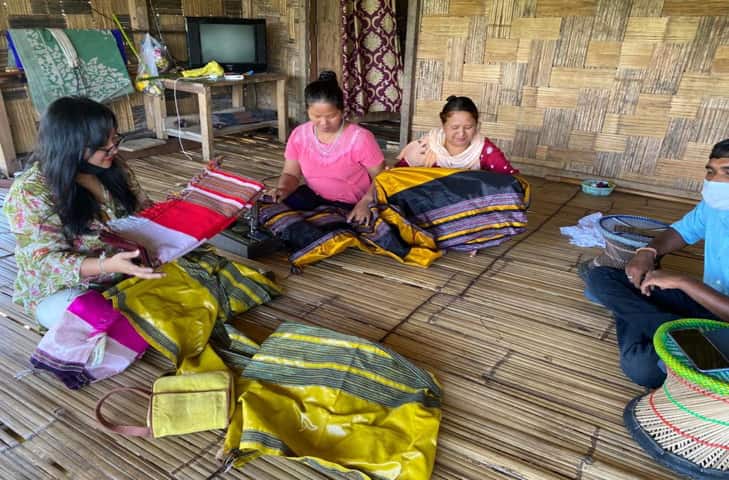Passion, business sense and commitment to welfare is what identifies a social entrepreneur and that is what Ninna Lego is. Championing the cause of sustainable living and empowering of local artisans, she is the founder of House of Macnok, a start-up, that sells – jewellery, home décor, accessories, and wellness products – that reflect the local culture, craft, skill, history and heritage while at the same time enables people especially women and youth across the Arunachal Pradesh to make a living.
Lego who grew up in Mariyang, a tranquil town in the Upper Siang district of Arunachal Pradesh, is a civil engineer from Chennai’s Dr. MGR University and an MBA in HR and Rajiv Gandhi University.
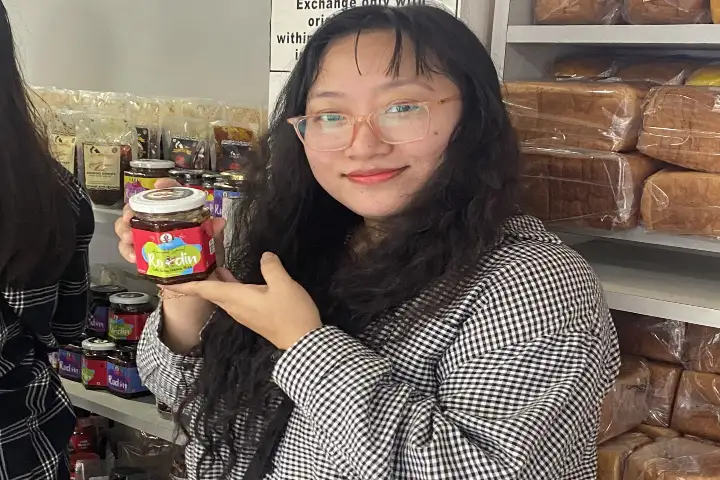
Sharing with India Narrative as to how HoM came into being, she said: “I was born in a family and community, called Adi, both devoted to social welfare. As a child I was taught the traditional craft of bidding and weaving handloom products and this hobby turned into a business when I started making earrings which my friends and family members liked. It sold like hot cakes and it was then the commitment to social welfare stirred in me to launch the start-up to help rural artists, artisans, farmers and college goers to make products, which are organic, natural, and non-toxic and help sustain traditional skills and crafts.”
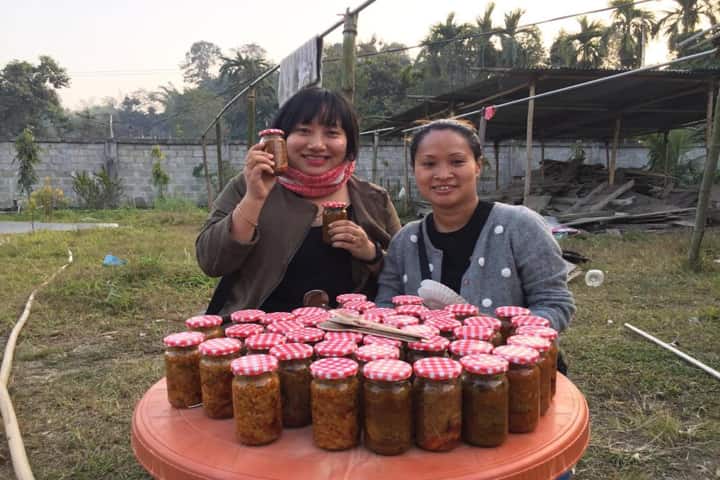
MoH has tied up with several women self-help groups which make handlooms, products out of bamboo, coasters, crochet dolls, dreamcatchers, earrings, key chains, car hangers, traditional brew, smoked tea, reusable sanitary pads, pickles with no added synthetic preservatives, wax aromatic candles, and handmade soaps and collect wild honey and medicinal herbs and spices.
“The products are made by women at the grassroot level who hail from diverse parts and communities of Arunachal, with just one per cent of the workforce being men. We are keen to showcase these products as belonging to Arunachal and not certain tribes or regions. At present there are nine SHGs associated with us and we help them market and develop designs for their products which are sold online, through social media platforms like Instagram and are available in three retail stores,” revealed Lego to India Narrative.
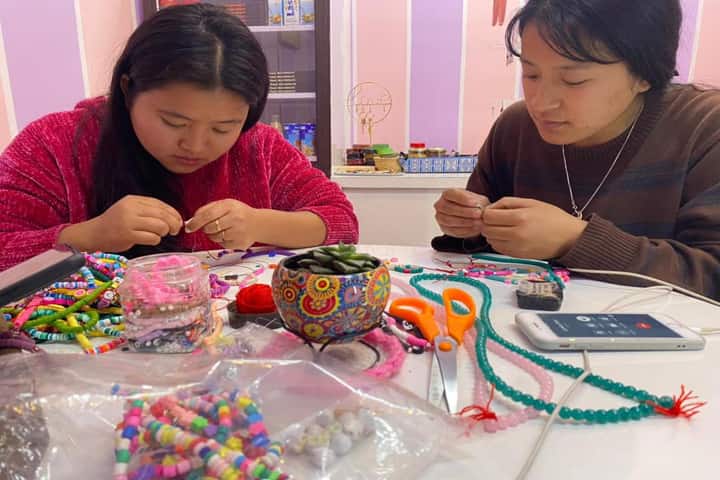
When asked if developing designs can lead to dilution or altering of traditional art, Lego said no. “We ensure that original art, craft and style is retained, as our objective is to preserve the indigenous practices which are slowly vanishing. Our aim is to promote the traditional art and skill. For example, there is a customary method of making objects like baskets and scoops by weaving bamboo in our State. We ask the craftsmen to incorporate new designs and motifs while retaining the old ones to impart certain freshness. Likewise, the pickles we sell have local herbs and spices with no synthetic preservatives. Handlooms also reflect the style and norms of more than 20 tribes in our State.”
HoM sells candles and soaps made by small-scale business women and college-goers and wine too. “It is a traditional wine which has been brewed by locals of Namdapha since time immemorial by using different fruits.”
The crochet dolls sold by HoM which are very popular are what mothers had been making for their children for a very long time. “It is eco-friendly and since there is plastic used, it is completely safe for kids. Again, there are diverse dolls mirroring the style of different tribes.”
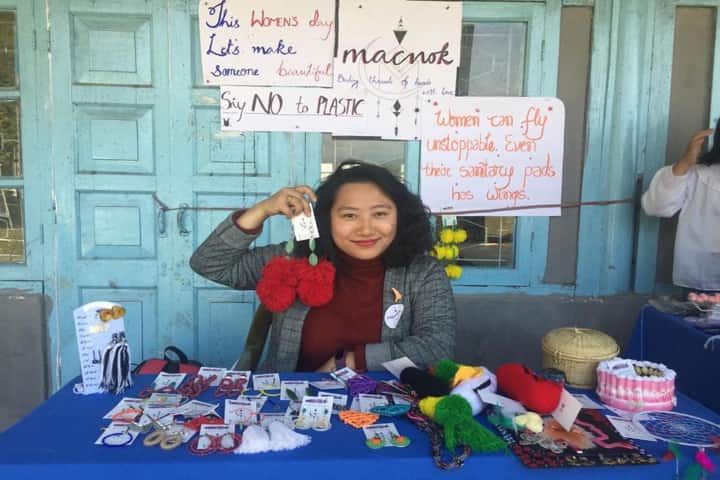
To ensure continuity of old skills, Lego brings in master trainers and craftsmen to teach them to youngsters. “We have tied-up with skill development centres and the department of textile and handicrafts for these sessions. Besides, handing over the craft to the next generation, it ensures a steady income for the trainers who are masters in local handloom, weaving, bidding, making of jewellery, accessories and bamboo products.”
She banks on agriculture colleges and villagers to help identify local herbs and spices which are both aromatic and beneficial to health.
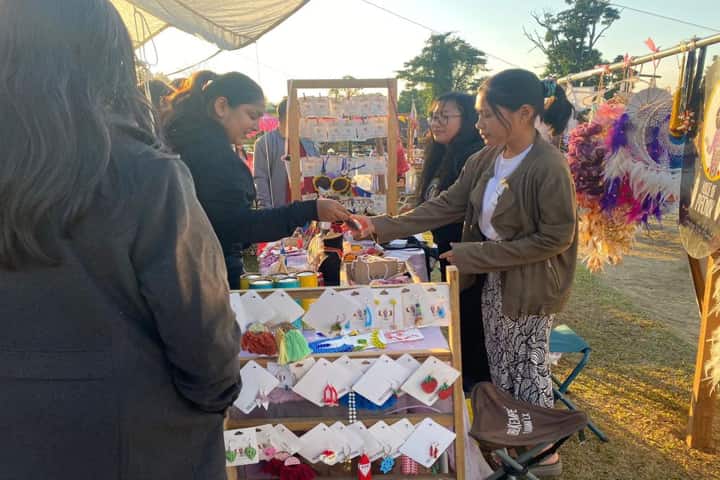
The associates or partners as Lego prefers to call them, are remunerated through different modes. “We have a revenue-sharing model, working on percentage model, paying internship and salary model to suit the needs of our partners. HoM profit margin varies between 20 to 25 per cent.”
Elaborating for India Narrative, Lego added: “Our model makes the middle-man redundant thus reducing the cost. For instance, 250 grams of wild honey procured by traders from tribes is sold in the market for Rs.1,500 while HoM sells it for Rs.450. This has helped us to change the narrative that is believed by many that sustainable means expensive.”
Conscious about the importance of reusing waste, Lego has now introduced upcycled fabrics to make dolls and mats.
“We are now working to make eco-friendly, biodegradable and reusable sanitary pads. It will cost just Rs.50 but can be washed and used 90 times,” she told India Narrative. For Lego who won the North East Entrepreneurship Challenge for 2023 under Incubation Category, all this is just a beginning both for HoM and her, as they have miles to go.
Also read: Karnataka NGO works tirelessly to keep age-old Lambini embroidery alive and kicking






